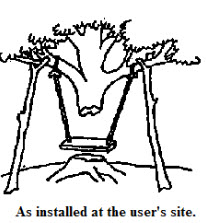Work to listen for… “What You Do Not Hear”
People like to stay on safe ground. So whether you are a CEO talking to an employee, or a salesperson talking to a prospect, people often water down the truth so you will accept what they tell you. This is why probing with additional questions is important when you sense that something might be wrong.
This is why probing with additional questions is important when you sense that something might be wrong.
Do not use who you are listening to as a foil for your hypotheses!
Listening sounds easy, but it is a difficult sport and a learned skill. Sitting quietly without interjecting with an opinion or a thought is not what we were taught to do. We are taught in grade school that it is good to participate actively and often.
Good listeners get to the truth, and the truth allows for good decisions. The result; no matter good or bad, is finding out about the truth will help you turn around a perception, opportunity, or even your company numbers.
You cannot fix what you do not know is broken.
If you’re listening to hear an answer to a predetermined question, then you will hear the “canned” definitions of needs that are expected.
The usual form of sales listening is conditioned by sales models looking for answers or flawed views of buyer psychology/process. What is required is a different quality of listening.
People prefer to buy what they need (stuff they’re going to buy anyway) from those who understand them on the basis of what they want. You don’t even have to always sell them everything they want; it is often enough to just understand what they are experiencing or want.
The most powerful way to sell depends on unlinking listening from selling—and instead, just listening. Listening not as a step in a sales process, and not as a search for answers to questions. Listening is not a means to an end, but an end in itself.
Making Listening Work!
Think out loud. The biggest obstacle to listening is your own thinking. Be courageous—postpone your thinking until they’re done talking. Be willing to think out loud. Doing so creates collaboration and transparency, and reinforces comprehension and trust.
I hear you. I value you. I respond to you, with no hidden agenda. I trust you. You can trust me.
The message of listening is to listen for what you do not know, not what you want to here!

leave a comment